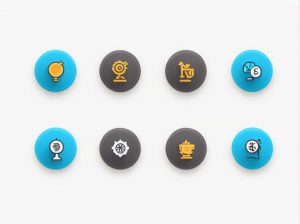When making purchases or investments, people often consider cost and worth. Although these terms are sometimes used interchangeably, they carry different meanings. Understanding the distinction between cost and worth can help individuals make more informed decisions, whether they are buying a product, investing in real estate, or assessing personal values.
What Is Cost?
Cost refers to the amount of money required to purchase a product or service. It is the price you pay to acquire something, including any associated expenses like taxes, shipping, or maintenance. Cost is usually a fixed value determined by the seller or manufacturer.
For example, the cost of a smartphone might be $800, including sales tax and shipping fees. This figure represents the financial expense needed to own the device.
Types of Cost
- Direct Cost: Expenses directly related to a product or service, such as raw materials and labor.
- Indirect Cost: Overhead expenses not tied to a specific product, like utilities and rent.
- Opportunity Cost: The potential benefits lost when choosing one option over another.
- Hidden Cost: Unforeseen expenses, such as maintenance, repairs, or additional accessories.
What Is Worth?
Worth is a subjective measure of value. It refers to the perceived benefit, usefulness, or satisfaction derived from a product or service. Unlike cost, worth varies from person to person based on personal preferences, experiences, and needs.
For example, a luxury watch might be worth a lot to a collector but hold little value to someone uninterested in fashion or brand prestige. Similarly, a family heirloom might have sentimental worth, even if its market value is low.
Factors Influencing Worth
- Emotional Value: Sentimental attachment or personal significance.
- Functional Value: Practical usefulness or effectiveness in fulfilling a need.
- Social Value: The status or recognition gained from owning a product.
- Cultural Value: Importance tied to traditions, beliefs, or historical significance.
The Relationship Between Cost and Worth
Cost and worth are interconnected but not always proportional. An item with a high cost may not necessarily be worth it to someone who does not value its features. Conversely, a low-cost product may hold great worth if it provides immense satisfaction or utility.
For example, a high-end gaming laptop might cost $2,000. For a professional gamer, it is worth the investment due to its advanced performance. However, for someone who only needs a device for basic tasks, the cost may outweigh the perceived worth.
Cost vs. Worth: Key Differences
- Objective vs. Subjective: Cost is objective and measurable, while worth is subjective and varies by individual.
- Fixed vs. Variable: Cost is generally fixed and set by the seller, whereas worth changes based on personal perception.
- Monetary vs. Emotional Value: Cost involves financial expenditure, while worth includes emotional, social, and functional value.
- Decision-Making Influence: Cost impacts budget decisions, while worth influences satisfaction and long-term value.
Why Understanding Cost and Worth Matters
Recognizing the difference between cost and worth is crucial for making informed financial decisions. It helps consumers evaluate whether a purchase provides genuine value or simply satisfies a fleeting desire. This awareness can prevent impulsive spending and promote smarter investments.
For instance, buying a designer handbag may cost $1,500. If the buyer values the brands status and quality, the worth justifies the cost. However, if the purchase is driven by impulse, the perceived worth might diminish over time, leading to regret.
Examples of Cost and Worth in Daily Life
Gadgets and Electronics
Many people purchase the latest smartphones, even if their current devices work perfectly. The cost is high, but the perceived worth may come from enhanced features, social status, or personal satisfaction. For others, the worth does not justify the cost, leading them to choose budget-friendly alternatives.
Real Estate
The cost of a house includes its purchase price, taxes, maintenance, and mortgage interest. Its worth, however, depends on location, emotional attachment, community, and long-term investment potential. A family may find immense worth in a home near good schools, while an investor values it for potential resale profit.
Education
Education often involves substantial costs, such as tuition fees, books, and accommodation. The worth of education is measured by the skills acquired, career opportunities, and personal growth. For someone pursuing a passion or high-paying career, the worth justifies the cost. However, if the degree does not lead to desired outcomes, the worth may be questioned.
Travel and Experiences
Travel expenses include flights, accommodation, and activities. However, the worth of travel lies in experiences, memories, cultural exposure, and personal fulfillment. A luxury vacation might cost a fortune but be worth every penny to someone seeking relaxation and adventure. Conversely, a budget traveler may find equal worth in a cost-effective backpacking trip.
How to Evaluate Cost and Worth
1. Assess Your Needs and Priorities
Before making a purchase, consider whether the item fulfills a genuine need or simply satisfies a temporary desire. Understanding your priorities helps determine whether the worth justifies the cost.
2. Compare Alternatives
Research different products or services to compare costs and features. Sometimes, a lower-cost alternative offers similar worth, saving you money without compromising satisfaction.
3. Consider Long-Term Value
Think beyond immediate gratification. Assess the long-term benefits, durability, and usability of a product. High-cost items may offer long-term worth if they provide lasting value or save money in the future.
4. Evaluate Emotional and Functional Value
Reflect on how the purchase makes you feel and its practical utility. Emotional satisfaction or enhanced functionality can add worth beyond the financial cost.
5. Avoid Impulsive Decisions
Impulse buying often leads to regret because the perceived worth diminishes over time. Take time to evaluate the purchase, ensuring the cost aligns with the long-term worth.
Balancing Cost and Worth
Cost and worth are distinct yet interconnected concepts. Cost is an objective measure of money spent, while worth is a subjective evaluation of value derived from a product or experience. By understanding the difference, consumers can make more informed decisions, balancing financial expenses with personal satisfaction.
Next time you face a buying decision, consider both the cost and worth. Ask yourself: Does this purchase bring value to my life? Will it provide long-term benefits or merely fulfill a temporary desire? By reflecting on these questions, you can spend wisely, ensuring every expense is truly worth it.



